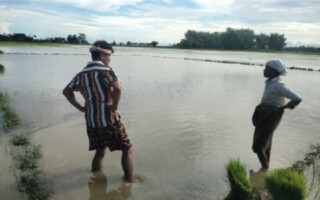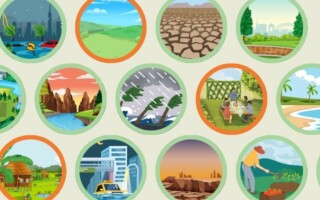
Employing an interdisciplinary approach, researchers unearth the coupled and complex relationships between social systems (e.g., human relationships, behaviors, and dynamics) and natural systems (e.g., climate and environment). With six decades of impact on improving social systems, the Council is expanding partnerships with institutions working on natural systems to evaluate the intersections and implications of these dependent processes. This approach acknowledges that humans and their environments cannot be treated as isolated systems or addressed with siloed solutions. By integrating human survey data with satellite-derived or remotely sensed climate data, and working with partners focused on patterns of climate change, agricultural production, and emissions, more can be learned about these interactions to identify patterns and opportunities for adaptation and mitigation.
Researchers are examining how climate and environmental changes shape natural agricultural and food systems, and how associated social systems around food security, children’s nutrition and health, households’ livelihoods, and corresponding decisions and behaviors about consumption, work, and migration are interconnected. It is established that climate change is driving heat waves as well as more erratic and intense rainfall, reducing agricultural production. However, humans are also choosing what crops to produce, how to distribute food and resources, what jobs to do, and where to live, impacting agricultural production as well. These two interconnected phenomena jointly produce implications for human health and well-being, as well as future land use and resources. The Council’s work can be used to inform and guide strategic and efficient investments, policies, and programs.




